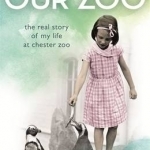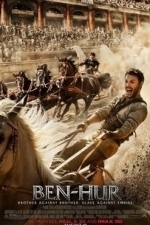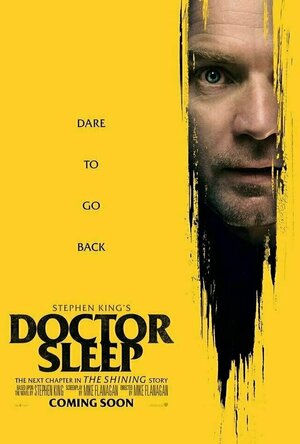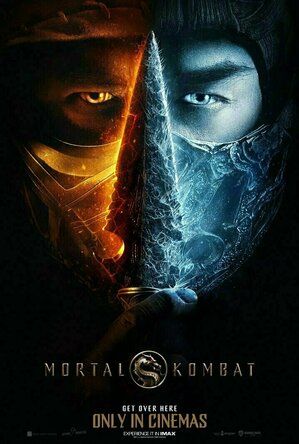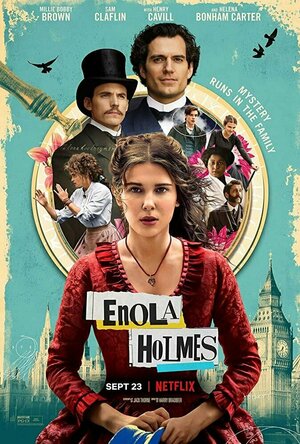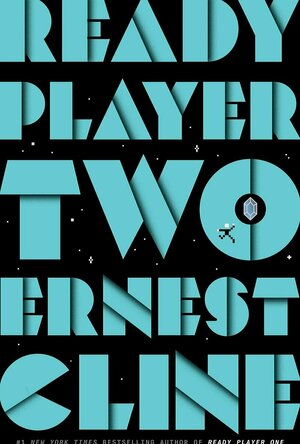Search
Search results
<i>This eBook was provided by the publisher via NetGalley in exchange for an honest review</i>
Many people in Britain may have recently watched the drama series <i>Our Zoo</i> on BBC1 about the Mottershead family who moved to Oakfield, Upton in 1930 with the aim of building a zoo without bars. Based on a true story the drama over exaggerated the difficulties the family faced in developing what became to be the famous Chester Zoo. Until 2010 when TV producer Adam Kemp approached her, June Mottershead had never thought about making her history available to the public. As the truth had to be bent slightly for the television production with the removal of certain characters and added romance, and, of course, the laws preventing chimpanzees from being filmed, June Mottershead has penned the true story, also called <i>Our Zoo</i>, which is just as fascinating as what was shown on screen.
June was only four when she moved to Upton with her parents, grandparents, and her fourteen-year-old sister Muriel as well as a selection of animals. The BBC1 drama only showed up until the point that her father, George, had finally been given permission to build his zoo despite the petition against it. In the book, however, this occurs within the first few chapters and then continues on until June’s marriage to her husband Fred Williams in 1949. In fact the time period of the narrative jumps around depending on the animals or events that June is describing.
A large chunk of the book is focused on the effect the Second World War had on the zoo. As can be expected the rationings of vital products took its toll on the animals’ diets and, although the zoo never took a direct hit, the Liverpool blitz caused havoc by destroying the glass tanks in the aquarium. On the other hand, the amount of animals rapidly grew, as it was not just humans that became refugees during the war.
It was a delight to read about June’s relationships with some of the animals, particularly Mary the chimpanzee who was also June’s best friend as a child and behaved in a humanlike manner. Alas, as well as the happy moments there were the inevitable upsetting accounts of the deaths some of the animals, either from old age, illness or accidents.
While <i>Our Zoo</i> cannot be described as a novel, it neither has the feel of an autobiography. The conversational tone of the writing made it a pleasure to read and easy to visualize (admittedly watching the televised version had already provided a certain image).
This easy to read book is a strong recommendation for those who enjoyed the BBC adaptation and wish to find out what happened next. It does not matter if you have not watched the drama, as it is overall a fascinating story to read.
Many people in Britain may have recently watched the drama series <i>Our Zoo</i> on BBC1 about the Mottershead family who moved to Oakfield, Upton in 1930 with the aim of building a zoo without bars. Based on a true story the drama over exaggerated the difficulties the family faced in developing what became to be the famous Chester Zoo. Until 2010 when TV producer Adam Kemp approached her, June Mottershead had never thought about making her history available to the public. As the truth had to be bent slightly for the television production with the removal of certain characters and added romance, and, of course, the laws preventing chimpanzees from being filmed, June Mottershead has penned the true story, also called <i>Our Zoo</i>, which is just as fascinating as what was shown on screen.
June was only four when she moved to Upton with her parents, grandparents, and her fourteen-year-old sister Muriel as well as a selection of animals. The BBC1 drama only showed up until the point that her father, George, had finally been given permission to build his zoo despite the petition against it. In the book, however, this occurs within the first few chapters and then continues on until June’s marriage to her husband Fred Williams in 1949. In fact the time period of the narrative jumps around depending on the animals or events that June is describing.
A large chunk of the book is focused on the effect the Second World War had on the zoo. As can be expected the rationings of vital products took its toll on the animals’ diets and, although the zoo never took a direct hit, the Liverpool blitz caused havoc by destroying the glass tanks in the aquarium. On the other hand, the amount of animals rapidly grew, as it was not just humans that became refugees during the war.
It was a delight to read about June’s relationships with some of the animals, particularly Mary the chimpanzee who was also June’s best friend as a child and behaved in a humanlike manner. Alas, as well as the happy moments there were the inevitable upsetting accounts of the deaths some of the animals, either from old age, illness or accidents.
While <i>Our Zoo</i> cannot be described as a novel, it neither has the feel of an autobiography. The conversational tone of the writing made it a pleasure to read and easy to visualize (admittedly watching the televised version had already provided a certain image).
This easy to read book is a strong recommendation for those who enjoyed the BBC adaptation and wish to find out what happened next. It does not matter if you have not watched the drama, as it is overall a fascinating story to read.
Gareth von Kallenbach (980 KP) rated Ben-Hur (2016) in Movies
Jul 15, 2019
Published in 1880, Ben-Hur: A Tale of the Christ is considered one of the most influential Christian books of the nineteenth century. The success of the novel led to film adaptations, most notably the 1955 academy award winning version of the film string Charlton Heston. Fast forward to 2016 and MGM and Paramount Pictures hope to see continue the success of this proven story with their newest film adaptation Ben-Hur.
The story follows a fictional Jewish Prince, Juda Ben-Hur (Jack Huston) as he is betrayed by his adopted brother and roman officer Messala (Toby Kebbell). Juda’s family is falsely accused of treason and Juda becomes enslaved by the Romans. Fueled by hate, Juda returns to Jerusalem seeking vengeance, until he unexpectedly finds compassion, forgiveness and redemption.
Walking into Ben-Hur, I did not know what to expect. I watched the 1955 version of Ben-Hur in 7th grade and did not remember anything accept the amazing chariot scene. That being said, this 2016 version of Ben-Hur stands on its own as a good film. Set in the time of Jesus, the story of Ben-Hur can be universally understood by people in all walks of life, religious or otherwise. That was something that I really appreciated about this film. Often stories set in a Christian setting can turn out to be distractingly preachy. However, Ben-Hur was the perfect blend of religion being hinted at throughout the story but never actually becoming the focal point of the story as a whole until redemption is found. Sure, it is there throughout for those who want it to be, but it also plays as a quiet catalyst for Juda through the compassion he sees in his wife Esther (Nazanin Boniadi) and Jesus (Rodrigo Santoro).
The film is acted well and the use of relatively unknown actors to play these major roles in an epic like this only works to strengthen the story as a whole. In fact, the most popular actor by far is Morgan Freeman (Ilderim) who has maybe 15-20 minutes of total screen time.
From a technical standpoint, Ben-Hur works not only visually with fantastic epic action scenes, but also in its pacing. The film’s pacing finds balance between intense action moments and the quieter exposition scenes that helps develop these characters, most notably Juda. We witness Juda’s transformation from naive prince, to a slave fighting for survival, to a man on a mission for revenge and the forgiveness he gains along the way.
Ben-Hur stands out to me this summer because at its core, it is a good coherent story told between impressive action pieces. Unlike so many recent summer blockbusters that are intent on showing off huge set pieces and not much more, Ben-Hur doesn’t forget that those action scenes are there to further the plot and tell a human story.
The story follows a fictional Jewish Prince, Juda Ben-Hur (Jack Huston) as he is betrayed by his adopted brother and roman officer Messala (Toby Kebbell). Juda’s family is falsely accused of treason and Juda becomes enslaved by the Romans. Fueled by hate, Juda returns to Jerusalem seeking vengeance, until he unexpectedly finds compassion, forgiveness and redemption.
Walking into Ben-Hur, I did not know what to expect. I watched the 1955 version of Ben-Hur in 7th grade and did not remember anything accept the amazing chariot scene. That being said, this 2016 version of Ben-Hur stands on its own as a good film. Set in the time of Jesus, the story of Ben-Hur can be universally understood by people in all walks of life, religious or otherwise. That was something that I really appreciated about this film. Often stories set in a Christian setting can turn out to be distractingly preachy. However, Ben-Hur was the perfect blend of religion being hinted at throughout the story but never actually becoming the focal point of the story as a whole until redemption is found. Sure, it is there throughout for those who want it to be, but it also plays as a quiet catalyst for Juda through the compassion he sees in his wife Esther (Nazanin Boniadi) and Jesus (Rodrigo Santoro).
The film is acted well and the use of relatively unknown actors to play these major roles in an epic like this only works to strengthen the story as a whole. In fact, the most popular actor by far is Morgan Freeman (Ilderim) who has maybe 15-20 minutes of total screen time.
From a technical standpoint, Ben-Hur works not only visually with fantastic epic action scenes, but also in its pacing. The film’s pacing finds balance between intense action moments and the quieter exposition scenes that helps develop these characters, most notably Juda. We witness Juda’s transformation from naive prince, to a slave fighting for survival, to a man on a mission for revenge and the forgiveness he gains along the way.
Ben-Hur stands out to me this summer because at its core, it is a good coherent story told between impressive action pieces. Unlike so many recent summer blockbusters that are intent on showing off huge set pieces and not much more, Ben-Hur doesn’t forget that those action scenes are there to further the plot and tell a human story.
Piper (13 KP) rated Doctor Sleep (2019) in Movies
Nov 27, 2019
Impressive Casting (2 more)
Excellent Ending
Beautifully Shot
Ridiculous Running Time (1 more)
Low On Scares
Doctor Sleep: The Long Haul
Contains spoilers, click to show
Watch enough horror movies, and you develop a certain tolerance: that said, I don't think you'd have to watch many to see this film and still not be scared. There are a couple of grisly moments, and Flanagan does an excellent job of building tension, but I had the feeling coming out of this film that I hadn't just seen a horror film at all. And I think that might have been the point: this was more about the story than the scares.
The story, overall, was well-adapted. About two-thirds of the way in the film really starts to veer off the path the book had laid out, but what it does with that last third is probably the best part of the movie. Spoilers follow: the end of Kubrick's "The Shining" left the Overlook Hotel intact (if a little sad) rather than burning it down as in the novel. Mike Flanagan does two things with this film, both adapting the novel and following on from Kubrick's film, and the Overlook features heavily in this ending and wraps up the Shining story quite nicely. In fact it seems the main purpose of the ending was to do justice to Stephen King's original vision, and in honesty it's a better ending than that of the novel.
Where "The Shining" largely ignored character's motivations and development and treated them essentially as set-pieces, "Doctor Sleep" spends far too long bringing them together. The characters are expertly cast, and Ewan McGregor almost takes a back-seat to let Kyleigh Curran's Abra shine (pun intended). Interactions are played off nicely and there's a self-referential cameo from Flanagan's other King adaptation that doesn't feel too shoe-horned in. The characters that are obviously just there to die die rather obviously, and one in particular serves purely as motivation for another to keep on fightin'. The acting itself excels, with a star turn by Rebecca Ferguson. The issue is that it simply could have been half an hour shorter, with half an hour less build-up. By the end of the movie I was just glad we had finally returned to the Overlook and things were starting to really happen.
The film is shot beautifully, and where scenes or characters from "The Shining" are re-created or referenced it's done with a great amount of care. I might have been the only one that found Rose flying above the clouds a little naff, but I still have to admit it was at least shot nicely. Overall, this was a brilliant film that could just have benefitted from a little trimming down, but Flanagan clearly cared about these characters and wanted us to feel for them and I think he certainly achieved that - and I have to stress again how ridiculously impressed I was with the ending.
The story, overall, was well-adapted. About two-thirds of the way in the film really starts to veer off the path the book had laid out, but what it does with that last third is probably the best part of the movie. Spoilers follow: the end of Kubrick's "The Shining" left the Overlook Hotel intact (if a little sad) rather than burning it down as in the novel. Mike Flanagan does two things with this film, both adapting the novel and following on from Kubrick's film, and the Overlook features heavily in this ending and wraps up the Shining story quite nicely. In fact it seems the main purpose of the ending was to do justice to Stephen King's original vision, and in honesty it's a better ending than that of the novel.
Where "The Shining" largely ignored character's motivations and development and treated them essentially as set-pieces, "Doctor Sleep" spends far too long bringing them together. The characters are expertly cast, and Ewan McGregor almost takes a back-seat to let Kyleigh Curran's Abra shine (pun intended). Interactions are played off nicely and there's a self-referential cameo from Flanagan's other King adaptation that doesn't feel too shoe-horned in. The characters that are obviously just there to die die rather obviously, and one in particular serves purely as motivation for another to keep on fightin'. The acting itself excels, with a star turn by Rebecca Ferguson. The issue is that it simply could have been half an hour shorter, with half an hour less build-up. By the end of the movie I was just glad we had finally returned to the Overlook and things were starting to really happen.
The film is shot beautifully, and where scenes or characters from "The Shining" are re-created or referenced it's done with a great amount of care. I might have been the only one that found Rose flying above the clouds a little naff, but I still have to admit it was at least shot nicely. Overall, this was a brilliant film that could just have benefitted from a little trimming down, but Flanagan clearly cared about these characters and wanted us to feel for them and I think he certainly achieved that - and I have to stress again how ridiculously impressed I was with the ending.
Gareth von Kallenbach (980 KP) rated Mortal Kombat (2021) in Movies
Apr 22, 2021
Fans of the Mortal Kombat series have known that the path to bringing the violent and controversial game to live-action formats has been a mixed bag. While the first film in 1995 was a decent hit; the follow-up in 1997 disappointed fans who had grown weary of the PG-13 take on the series.
Subsequent efforts such as the 2011 television series also left fans wanting more; especially since the game series had become even more graphic and violent.
An animated film released in 2020 gave fans a taste of what they wanted as it featured graphical violence which many fans believed was essential to properly catch the spirit and action of the series.
The latest offering in the series “Mortal Kombat”; reboots the cinematic universe and gives fans the intense, brutal, and graphic violence that they have demanded. The film keeps the basic premise that the Outworld realm has won nine tournaments in a row, and based on the ancient laws; one more victory would allow them to take control of the Earth.
Raiden the Thunder God (Tadanobu Asano); who has been tasked with protecting Earth looks to assemble and train a band of champions to save Earth. Naturally, this is not going to be easy as Shang Tsung (Chin Han); is not willing to follow the rules of the tournament and dispatches his top fighter (Sub Zero (Joe Taslim) to dispatch the champions of Earth before the tournament in a clear violation of the rules in order to ensure total victory.
What follows is solid and very graphic action which contains gore and brutality on a level that almost kept the film from earning an R-rating. The action sequences are well-choreographed and there were some great recreations of classic moves by characters from the game series which were really well utilized and did not seem like gratuitous pandering.
While the plot is fairly simplistic and does not deviate greatly from the source material; it does give a larger backstory to the universe. It was really enjoyable to see many nods to the franchise throughout both subtle and overt and while some characters were glaringly absent which was a surprise; the characters that were included were really solid to see and the door was wide open for their inclusion at a later date.
While the cast does not contain any star power in terms of what Western audiences might expect from a major studio release; the ensemble works well and do a great job in bringing their characters to life.
The film leaves sequels wide open and teases a character that in my opinion was a glaring omission from the film. That being said; “Mortal Kombat” gives fans a solid adaptation that does not shy away from gore and violence and gives fans the cinematic experience that they have wanted.
3.5 stars out of 5
Subsequent efforts such as the 2011 television series also left fans wanting more; especially since the game series had become even more graphic and violent.
An animated film released in 2020 gave fans a taste of what they wanted as it featured graphical violence which many fans believed was essential to properly catch the spirit and action of the series.
The latest offering in the series “Mortal Kombat”; reboots the cinematic universe and gives fans the intense, brutal, and graphic violence that they have demanded. The film keeps the basic premise that the Outworld realm has won nine tournaments in a row, and based on the ancient laws; one more victory would allow them to take control of the Earth.
Raiden the Thunder God (Tadanobu Asano); who has been tasked with protecting Earth looks to assemble and train a band of champions to save Earth. Naturally, this is not going to be easy as Shang Tsung (Chin Han); is not willing to follow the rules of the tournament and dispatches his top fighter (Sub Zero (Joe Taslim) to dispatch the champions of Earth before the tournament in a clear violation of the rules in order to ensure total victory.
What follows is solid and very graphic action which contains gore and brutality on a level that almost kept the film from earning an R-rating. The action sequences are well-choreographed and there were some great recreations of classic moves by characters from the game series which were really well utilized and did not seem like gratuitous pandering.
While the plot is fairly simplistic and does not deviate greatly from the source material; it does give a larger backstory to the universe. It was really enjoyable to see many nods to the franchise throughout both subtle and overt and while some characters were glaringly absent which was a surprise; the characters that were included were really solid to see and the door was wide open for their inclusion at a later date.
While the cast does not contain any star power in terms of what Western audiences might expect from a major studio release; the ensemble works well and do a great job in bringing their characters to life.
The film leaves sequels wide open and teases a character that in my opinion was a glaring omission from the film. That being said; “Mortal Kombat” gives fans a solid adaptation that does not shy away from gore and violence and gives fans the cinematic experience that they have wanted.
3.5 stars out of 5
BankofMarquis (1832 KP) rated Enola Holmes (2020) in Movies
Oct 18, 2020
A Winning (enough) combination
I'm a sucker for Sherlock Holmes. I grew up watching the fantastic black and white Holmes films from the 1940's starring Basil Rathbone and Nigel Bruce. I checked out '70's Holmes flicks like MURDER BY DECREE and the 7 PERCENT SOLUTION and then re-fell-in-love with Holmes with the Jeremy Brett BBC SHERLOCK HOLMES TV series of the 1980's and, of course, Benedict Cumberbatch's modern take on the master sleuth in the 2000's was "must see TV" for me. I was even on-board with Robert Downey Jr's. "take" on this iconic sleuth and was thrilled when Sir Ian McKellen portrayed an elderly Sherlock Holmes in MR. HOLMES.
So...I eagerly awaited the Netflix treatment of the "younger" sister of Sherlock Holmes in ENOLA HOLMES -and, I gotta say, I wasn't disappointed.
Based on the Young Adult series of novels by Nancy Springer, ENOLA HOLMES introduces us to the (heretofore unknown) younger sister of Sherlock and Mycroft Holmes. Raised by a fiercely independent mother in the late 1880's, Enola goes searching for her when she goes missing and gets mixed up in the "The Case of the Missing Marquess" along the way.
Millie Bobbie Brown (STRANGER THINGS) is a winning, charismatic (enough) performer as Enola. She is a steady and sure hand at the helm of this ship throughout the course of this 2 hour and 3 minute adventure. While I would have liked her to command the screen more with her presence, she does enough to make it a good, solid, effort.
The supporting cast is just as good. Helena Bonham Carter (FIGHT CLUB) is perfectly cast as Enola's (and Sherlock's and Mycroft's) mother - she has that fierce streak of independence and "don't mess with me" energy while carving her own path. She is the type of character that one would go looking for if she went missing. Sam Claflin (HUNGER GAMES: CATCHING FIRE) is finely unrecognizable (at least to me) as Mycroft - written in this piece as the more "traditional" of the Holmes family and Henry Cavill (MAN OF STEEL) brings a strong arrogance to his portrayal of Sherlock. He also brings something else - heart - to this character, a character trait that has "traditional" fans of this character up in arms. For me, it works well in the context of this film.
As for the film itself - it is good (enough). I found myself enjoying the mystery and the characters and enjoyed my time in this world. It's not anything new, but it's like putting on a pair of old shoes - comforting to wear.
This is an adaptation of the first book of the series, and I, for one, hope that there are more. It's a winning combination that was pleasant to watch.
Letter Grade: B+
7 1/2 stars (out of 10) and you can take that to the Bank(ofMarquis)
So...I eagerly awaited the Netflix treatment of the "younger" sister of Sherlock Holmes in ENOLA HOLMES -and, I gotta say, I wasn't disappointed.
Based on the Young Adult series of novels by Nancy Springer, ENOLA HOLMES introduces us to the (heretofore unknown) younger sister of Sherlock and Mycroft Holmes. Raised by a fiercely independent mother in the late 1880's, Enola goes searching for her when she goes missing and gets mixed up in the "The Case of the Missing Marquess" along the way.
Millie Bobbie Brown (STRANGER THINGS) is a winning, charismatic (enough) performer as Enola. She is a steady and sure hand at the helm of this ship throughout the course of this 2 hour and 3 minute adventure. While I would have liked her to command the screen more with her presence, she does enough to make it a good, solid, effort.
The supporting cast is just as good. Helena Bonham Carter (FIGHT CLUB) is perfectly cast as Enola's (and Sherlock's and Mycroft's) mother - she has that fierce streak of independence and "don't mess with me" energy while carving her own path. She is the type of character that one would go looking for if she went missing. Sam Claflin (HUNGER GAMES: CATCHING FIRE) is finely unrecognizable (at least to me) as Mycroft - written in this piece as the more "traditional" of the Holmes family and Henry Cavill (MAN OF STEEL) brings a strong arrogance to his portrayal of Sherlock. He also brings something else - heart - to this character, a character trait that has "traditional" fans of this character up in arms. For me, it works well in the context of this film.
As for the film itself - it is good (enough). I found myself enjoying the mystery and the characters and enjoyed my time in this world. It's not anything new, but it's like putting on a pair of old shoes - comforting to wear.
This is an adaptation of the first book of the series, and I, for one, hope that there are more. It's a winning combination that was pleasant to watch.
Letter Grade: B+
7 1/2 stars (out of 10) and you can take that to the Bank(ofMarquis)

Ticket to Ride: First Journey
Games
App
"***It looks like Days of Wonder has come up with a solution to my problem with the introduction of...

NAVIGON U.S. West
Navigation and Travel
App
With NAVIGON you can turn your iPhone or iPad into a fully functional mobile navigation system....

Mordheim: Warband Skirmish
Games
App
Explore the ruins of the City of Mordheim, clash with other scavenging warbands and collect...
Amy Norman (1048 KP) rated Ready Player Two in Books
Jul 23, 2022
I didn't want the reviews to be true but unfortunately I feel they were correct. I went into this with an open mind and ready to form my own opinions but alas this time I side with the majority.
***No direct spoilers as such but you may infer some details from what I have said***
I didn't struggle with the referencing and overexplaining that some people felt occurred in the first book but this was something completely different in the sequel.
In the first book, there was passion and a sense of urgency, and it drew you along to a satisfying conclusion. There were specific parts to the book that stood out, and it felt like a fully realised story that could almost happen.
I was really invested in the first book but this time round it was missing something.
Although the stakes were set higher it never felt like there was any real danger. There are some truly dramatic scenes but at no point did I feel like Cline had the heart to go all Game of Thrones on us.
I think Cline overstretched himself with trying to cram in 7 fantastical quests, world's, and puzzles to solve, that all the magic of the first book was completely lost.
He could have made this work well but the sped up timeline forced him into a corner there was no escaping from.
Rushed in places, where fans of the first book would have adored more detail and reveled in it, and then hyper focused and drawn out details of some really odd choices, means this book just falls flat.
There was so much potential here, but it felt like Cline was trying too hard to pay lip service to his peers and people he admires in a Halliday-esqe way, this can be felt if you actually read the acknowledgements. The comparison to Cline and some of the characters becomes quite apparent there, and are almost beyond cliche.
There is still ongoing talk of a movie adaptation for this sequel, and I feel like Cline really leaned into the idea of this (after the success of the first one). As this book would probably work better as a screenplay. I feel like this may be one of those extremely rare occurrences where the movie has the potential to be better than the book.
I often try to leave balanced reviews and can find a positive to end on but I was mostly disappointed by the end of reading, so I am struggling to end on a positive!
How about this?
There is no mention of a part three in the future but I feel like Cline has given himself the opportunity to have a fresh start, if there were to be a Ready Player Three, there are so many avenues he could explore, and bring the magic back! So I am hopeful for the futute.
***No direct spoilers as such but you may infer some details from what I have said***
I didn't struggle with the referencing and overexplaining that some people felt occurred in the first book but this was something completely different in the sequel.
In the first book, there was passion and a sense of urgency, and it drew you along to a satisfying conclusion. There were specific parts to the book that stood out, and it felt like a fully realised story that could almost happen.
I was really invested in the first book but this time round it was missing something.
Although the stakes were set higher it never felt like there was any real danger. There are some truly dramatic scenes but at no point did I feel like Cline had the heart to go all Game of Thrones on us.
I think Cline overstretched himself with trying to cram in 7 fantastical quests, world's, and puzzles to solve, that all the magic of the first book was completely lost.
He could have made this work well but the sped up timeline forced him into a corner there was no escaping from.
Rushed in places, where fans of the first book would have adored more detail and reveled in it, and then hyper focused and drawn out details of some really odd choices, means this book just falls flat.
There was so much potential here, but it felt like Cline was trying too hard to pay lip service to his peers and people he admires in a Halliday-esqe way, this can be felt if you actually read the acknowledgements. The comparison to Cline and some of the characters becomes quite apparent there, and are almost beyond cliche.
There is still ongoing talk of a movie adaptation for this sequel, and I feel like Cline really leaned into the idea of this (after the success of the first one). As this book would probably work better as a screenplay. I feel like this may be one of those extremely rare occurrences where the movie has the potential to be better than the book.
I often try to leave balanced reviews and can find a positive to end on but I was mostly disappointed by the end of reading, so I am struggling to end on a positive!
How about this?
There is no mention of a part three in the future but I feel like Cline has given himself the opportunity to have a fresh start, if there were to be a Ready Player Three, there are so many avenues he could explore, and bring the magic back! So I am hopeful for the futute.
